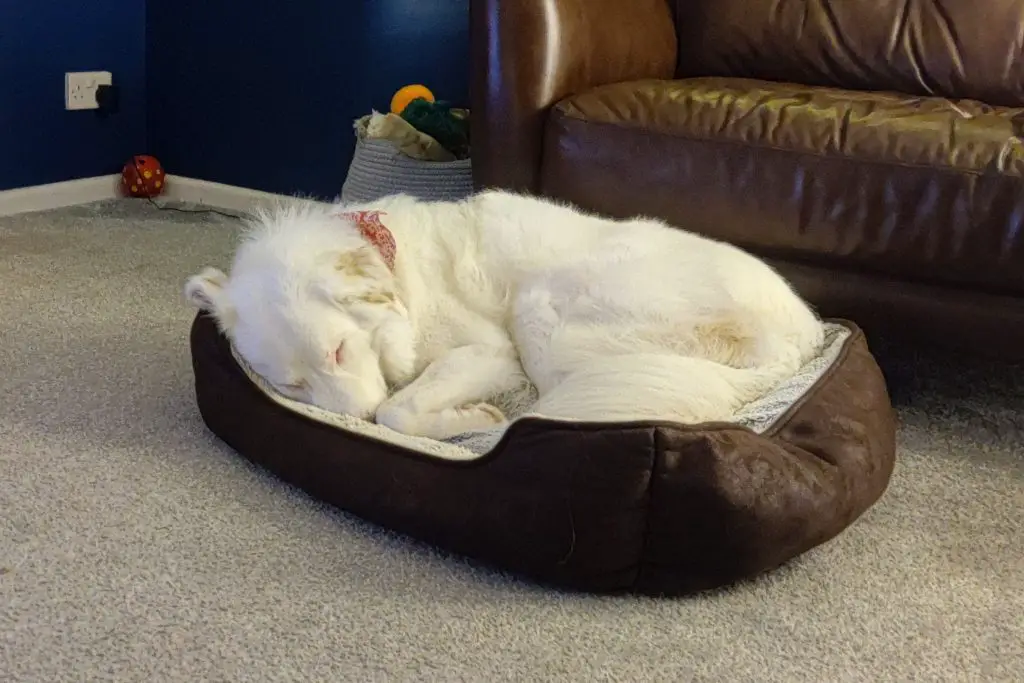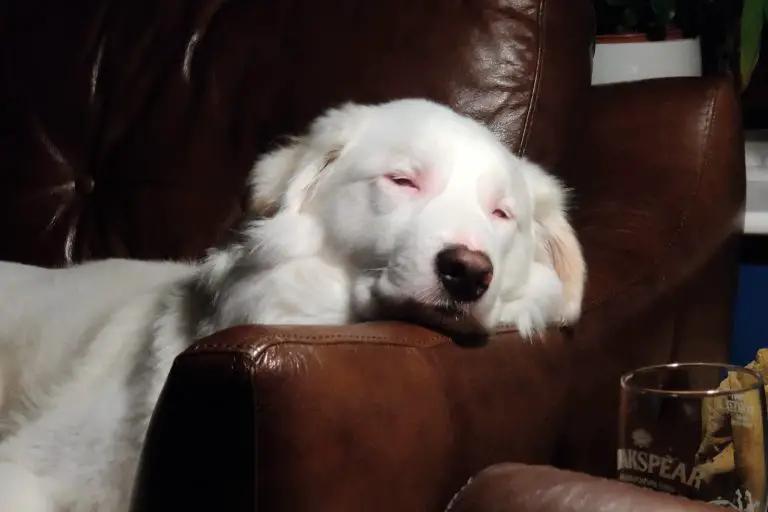Ruff Roaming is supported by its readers. If you make a purchase through one of the affiliate links on this page, we may earn a small commission.
Can I Walk My Dog With Kennel Cough?


Overview
It’s best to avoid going on walks with your dog if they have kennel cough. It’s a very contagious illness, so staying in will reduce the risk of your dog passing it on to others. A break from exercise will also shorten the recuperation period your dog needs to get over the kennel cough.
What is Kennel Cough?
Kennel cough is the colloquial name given to canine bronchitis. It’s a respiratory infection that causes a dry hacking cough. Some dogs may also show other symptoms such as discharge from the eyes, a runny nose, and sneezing.
It’s rarely dangerous for adult dogs who are otherwise healthy, and will normally go away on its own. For puppies, elderly dogs and those dogs with pre-existing conditions however, it has a bigger chance of developing into pneumonia.
Kennel cough is a highly contagious airborne infection that spreads quickly in environments where there are lots of dogs (hence the name). Your dog doesn’t have to be in the kennels to catch it though. The virus can live on surfaces, so your dog could contract it from sniffing a contaminated spot at the local park or drinking from an infected communal water bowl. It also has an incubation period of 3-14 days, so it’s likely that your dog has been carrying the virus for a few days before showing symptoms.
Can I Walk My Dog With Kennel Cough?
It’s recommended that you don’t go out to walk your dog while they have kennel cough. Due to its highly infectious nature, your dog should be kept in isolation while they are showing symptoms and then for another 2-3 weeks after their symptoms have cleared. While your dog might appear quite well aside from the cough, it can cause more severe complications in very young and very old dogs. Keeping your dog isolated helps to prevent these higher risk groups from unwittingly picking it up.
Having a rest from exercise will also help your dog recover from the illness. Just like us humans, dogs need plenty of rest when they’re feeling under the weather. Letting them rest in a warm and comfortable environment is a much better course of action than taking them into the cold outdoors for a walk.
A break from walking also means a break from wearing a collar. Kennel cough causes inflammation and irritation of the airway. If you take your dog for a walk with their lead attached to their collar, it will cause further irritation of the throat and prolong the time needed for recovery.


What Should I Do Instead?
Instead of going out walking, let your dog rest as much as possible in the house. If you have an enclosed outdoor space at your house, it’s fine for your dogs to wander around here providing that it’s not a space that’s shared with other dogs.
If you find that your dog is getting restless without a walk, then engage them with some mental stimulation to wear their brains out. This can be as simple as spending some time playing with them and their favourite toy. Alternatively, why not use their isolation period to teach them a new trick or two?
If you feel that you have no other option but to walk your dog, make sure that you go a time when there will be very few other dogs around. Keep the distance short and use a harness rather than a collar. If you see another dog, keep away from them.
Prevention and Treatment
To avoid having to isolate in the first place, make sure your dog is up to date with their kennel cough vaccinations. Being vaccinated will greatly reduce the chances of your dog catching the virus and will mitigate the symptoms if they do. It’s important to note that the vaccine is not 100% effective due to the fact that kennel cough can be caused by multiple different strains of bacteria. The vaccine should be administered on an annual basis.
If you believe your dog has kennel cough, keep them isolated in the manner described above. Contact your vet if the coughing hasn’t stopped for a couple of days or is particurlarly harsh. Be sure to let your vet know that your dog may have kennel cough before arriving at the practice.
In most cases the vet will just prescribe rest, but they might prescribe antibiotics or anti-inflammatory medicines for more severe cases. If symptoms persist after 2 weeks, or your dog displays new symptoms like a fever or a loss of appetite, contact your vet.
More Like This...
Walking Dogs In The Rain: A Guide For Wet Weather Walks
Walking your dog is an essential part of their physical and mental well-being, but what...
Why Dogs Are Better Than Cats
Are dogs better pets than cats? It’s the age-old debate that’s divided the population into...
Is Toby Carvery Dog Friendly?
Toby Carvery have over 100 locations across the UK. This article tells you all you...
Are Best Western Hotels Dog Friendly?
Best Western have hundreds of hotels across the UK. This article tells you all you...



